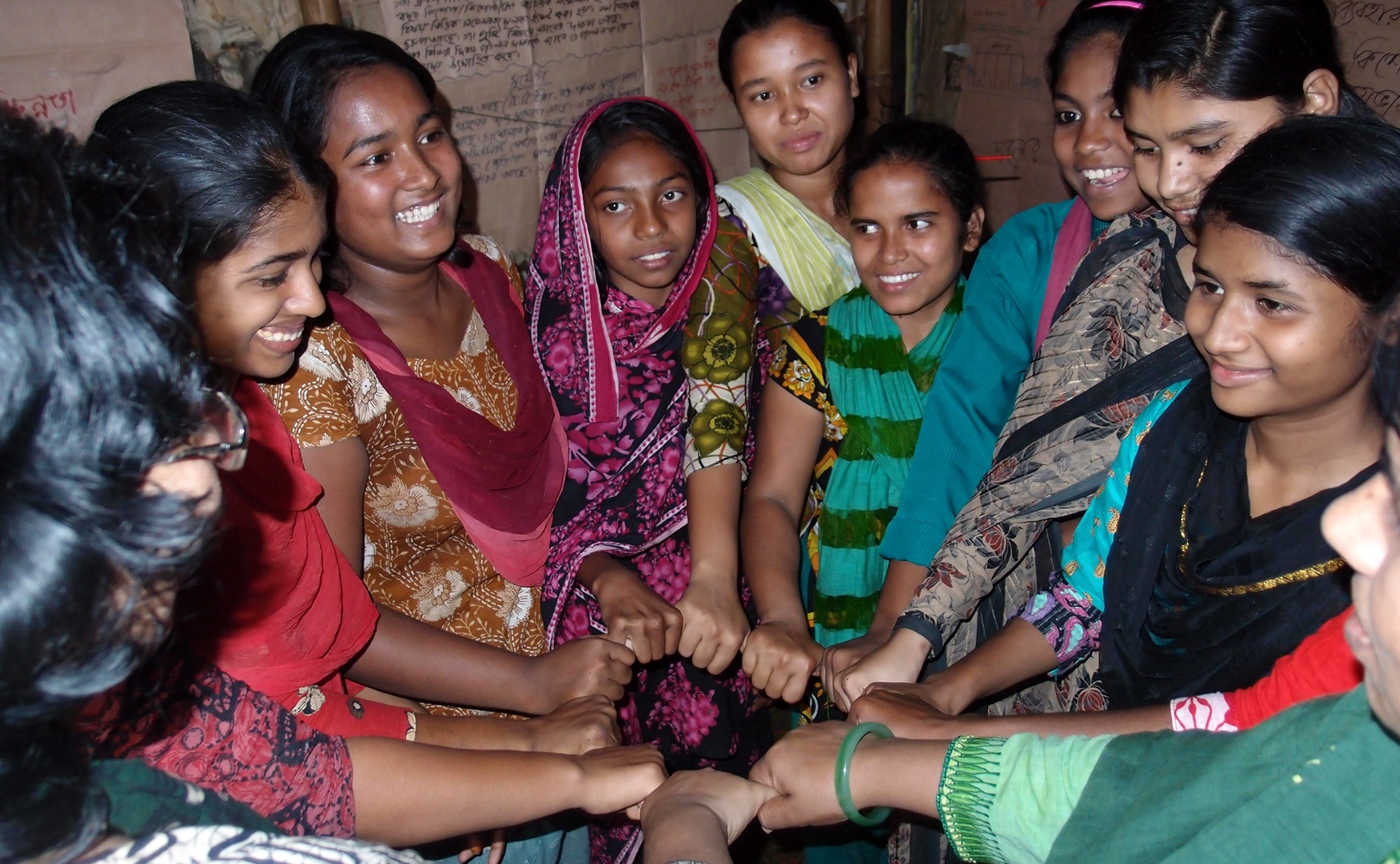[ ‘SHARE’ Jul-Aug 2014 ] JOIN HANDS JOIN HEARTS
Dropping out of school after a few short years, child labour and early marriage seem to be the only options for many Bangladeshi girls.
With little access to birth control, Bangladeshi families are large, so it is already hard to feed the household, let alone provide education for the children. Because of the male-dominant culture, girls, especially the older ones, are usually forced to give up school. Further, a dowry is obligatory, the amount of which increases as the bride gets older, and hence impoverished families try to marry off their girls young so to ease their financial burden.
Trisna is the second oldest child in her family – the eldest sister is already married and her younger siblings are at school. The whole family’s livelihood depends on the father’s meagre income as a security guard.
The parents do want education for Trisna but they lack the means – they even considered marrying off Trisna to alleviate the family burden.
In places like India, Nepal and Bangladesh, many girls drop out of school and earn income by sewing. Trisna belongs to a girls group in a youth development program of CEDAR’s partner, PARI. Through regular meetings, members learn about legal protections for underage girls and the shortcomings of early marriage; members also enhance their sewing skills there.
Yet Trisna’s biggest wish is to return to school. Encouraged by her group members, Trisna has started to save up money from her sewing for her own school fees. Her parents gladly let Trisna continue school if fees are not a problem, because they know that education leads to a better life.
Trisna’s father says, “I never imagine that anyone would help my daughter like this. Trisna has learned a lot from the group and I am very grateful for PARI’s help that Trisna can have a brighter future.”
‘Join Hands Join Hearts’ Children Ministry Scheme





